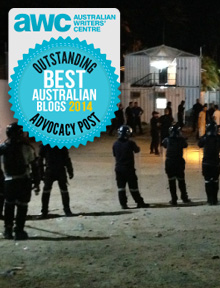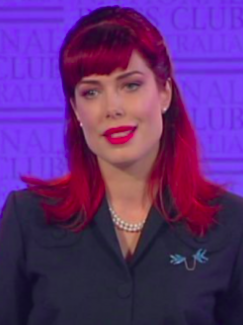As a writer, public figure, child rights and human rights advocate, social media user and parent, the issue of cyberbullying and online safety really hits home for me.
I’ve been using online spaces and social media for many years now, and I get a lot out of it. I like hearing from readers and other writers. I enjoy reading about other people’s experiences, and I learn from it. Online technology has allowed me to write directly and interact with readers outside of book signing line-ups or public talks. It has made us all more contactable, and in real time. The digital world has allowed me to access and share writing and research in new ways, manage household bills and stay connected with distant relatives, among other benefits. With these many positives come new challenges, however. I find the vast majority of online interactions positive or interesting, even where there is disagreement, but there are other kinds of engagements, of course, and those can vary from intense vitriol to illegal threats. I’ve had my share. But you don’t need to be in the public eye to cop threats online, or for that matter to find yourself the target of hacking or fraud. Make no mistake, online safety is now a key issue for every one of us.
As US blogger Nilay Patel writes, ‘Internet access isn’t a luxury or a choice if you live and participate in the modern economy, it’s a requirement. Have you ever been in an office when the internet goes down?…The internet isn’t an adjunct to real life; it’s not another place. You don’t do things “on the internet,” you just do things.’
It’s often said that the internet is not real life, but it is. Things said online are sent by real people, and received by real people. Online actions have physical world consequences, and increasingly we are all caught in those impacts and consequences.
I am frequently asked for advice on how to handle cyberbullying, trolls and Internet safety and I’ve had the honour of speaking out on this issue at schools and on shows like Q&A. Sadly, there isn’t one school I have spoken at in recent years that has not been visited by the spectre of bullying and the use of cyberspace for bullying, sometimes to tragic ends. Like I said, you don’t need to be a public figure to cop abuse or find yourself exposed to invasions of privacy and security, and sadly, you don’t even need to be an adult. I wrote about this recently for The Weekend Australian:
“Technology has opened up new ways to access help and supportive communities, but also to shame, bully and brutalise. The Australian this year reported on the case of a Year 6 boy who coerced an 11-year-old girl in his class to text him a naked photo. He sent it to 21 mates. This is just one of many similar cases, and according to child psychologist Michael Carr-Gregg, the boy risked prosecution under the Criminal Code for obtaining child pornography. In recent years, the Australian Federal Police has prosecuted eight children between the ages of 10 and 17 for child pornography offences.
An extension of this is known as Revenge Porn, where people – often former partners or friends – choose to post private and intimate photos of women and girls (and less commonly boys and men) online without consent. Sometimes these images were posed for during a consensual relationship, and other times the images were taken without their knowledge. Some victims, including children, have web cameras, home security cameras or even baby monitors hacked, with their bedrooms live-streamed online. There is a new trade in this type of material. (I recommend having good passwords, changing them regularly and placing a sticker over web cameras when they are not in use.)
While the narrative on these issues too often focuses on blaming the victim, we should be focusing on consent and ethics here – sexual ethics, the ethics of trust and privacy, and the ethics of participating in criminal acts by distributing and viewing non-consensual pornography. It’s never OK. Boys and girls need to be taught this.”
Technology is powerful and has opened up many new positive avenues for communication, learning and managing our lives, but there are also new risks and ethical and legal considerations.
Are kids and parents discussing the consequences and risks of online actions? Internet security company Norton commissioned a quantitative survey earlier this year to determine Australian parents’ involvement with their children’s online activity. The results were released today, and some of the stats are surprising: 74 per cent of parents surveyed did not know exactly what their kids were doing online, 41 per cent never checked their kids’ online activities, 52 per cent had never discussed sexting and 41 per cent had never discussed cyberbullying with their children. In addition, 1 in 5 parents had been contacted at least once by a school about social media posts made by one of their children. (Find out more results here.) When we think about cyberspace, kids and bullying, we often think about the victims, but children are often perpetrators as well. Further, although previous research shows that 1 in 3 kids self-identify as having been bullied online, only 15 per cent of the parents surveyed were aware that one of their children had experienced cyberbullying.
In my view, we could all benefit from a more open dialogue, and having online ethics taught early, and often. We can’t avoid this conversation. There are steps we can take as individuals, as parents, and as a community towards online safety and good digital citizenship, both for ourselves and our kids, to engender good ethical practices and to prevent and reduce the impact of online harm now and into the future. Parents can’t do it alone, and neither can schools. (Some have consistent online ethics and safety programs in place, many do not.) This needs to be a conversation in our homes, schools, workplaces, in our communities and on a national level.
That is one of the reasons I am happy to announce that I will be joining the Norton team to engage further on this important issue as their Family Ambassador.
* Photograph of Tara Moss, above, by Toby Dixon.
* Related links:
Lawstuff – Learn about your rights, and what the laws are in Australia for cyberbullying
beyondblue – www.beyondblue.org.au or 1300 22 4636
Kids Helpline – http://www.kidshelp.com.au or 1800 55 1800
Office of the Children’s eSafety Commissioner





fyi